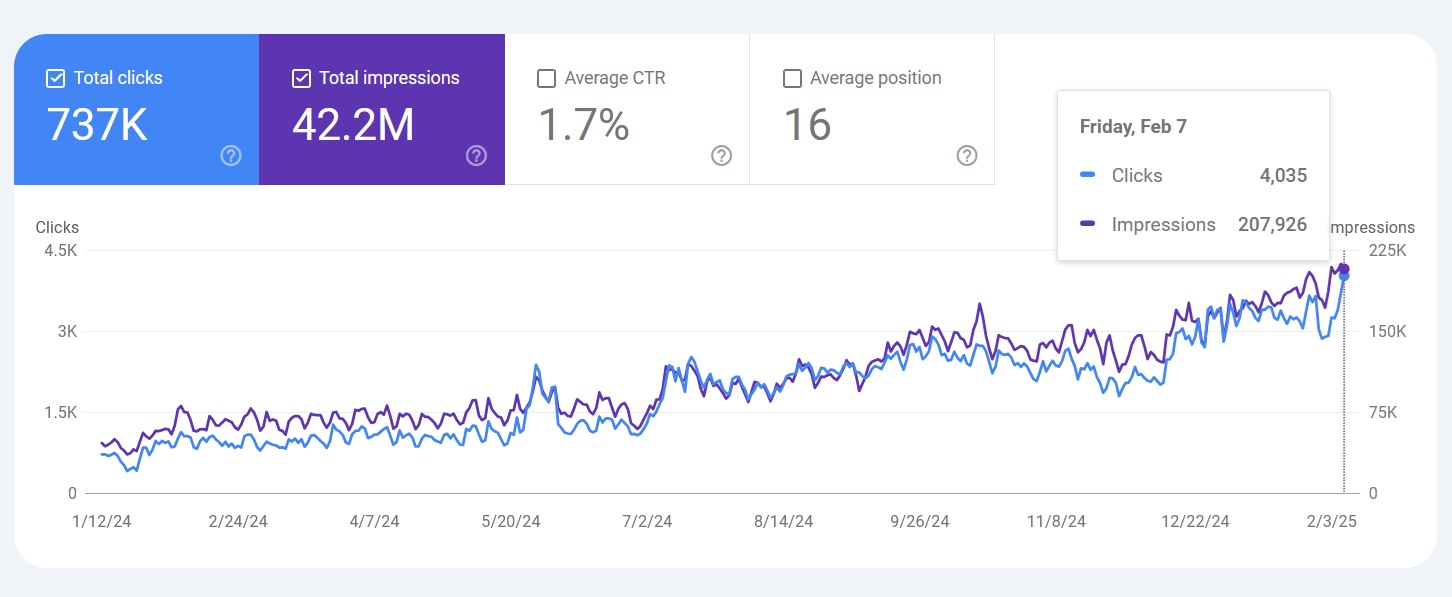Those of us in private practice are multi-talented in that we are both high level practitioners in our fields AND engaging entrepreneurs. Not everyone is cut out for the rigors of private practice, but those who succeed do so because they master the art of marketing a private practice. The problem is that technological advances are changing the field of digital marketing every month. How can you master your craft while also promoting your business to keep new patients and clients walking through your door? Patient Peak has already figured out how to create a custom patient recruiting engine just for you. Reach your peak practice with our marketing mavericks by your side. Here’s how:
The Patient Peak Approach to Marketing a Private Practice
I speak from experience. As the founder of Patient Peak, I’ve applied the tactics that I learned from my 25 years in private practice to help physicians, therapists, coaches, and medical companies to reach new heights in their practice. The key lesson: for your business to grow, you too much grow as the leader.
I discovered that there 2 key elements to creating referrals to your practice:
- Word of Mouth Referrals
- Online Referrals from Your Website after being optimized using SEO
Everything else plugs into these 2 referral streams. Your social media accounts, online articles, appearances in the news will all lead back to your website for more information and to make an appointment, or lead to a phone call like word of mouth referrals. Even with direct referrals, a new patient or client is still going to research you on Google. Hopefully, they find your website first so that you can control the narrative about who you are and what service you offer. If there are any negative reviews or comments out there, SEO can be used to make sure your website, social media accounts, press releases, and Medium articles show up as the top results so no one will pay attention to the unfavorable bits.
Why Choose a Marketing Guide?
As a busy practitioner, you won’t likely have a lot of extra time and energy to craft a comprehensive marketing strategy. But if you can’t make time to clarify your message, how will new patients/clients find you when they too have busy lives? You need to broadcast a clear message to reach new people through the noise of their lives.
By the time that an established practice comes to my doorstep, they’ve already tried to do it on their own.
- They’ve already tried Google, Facebook, and Instagram ads without getting an earnest ROI
- They made a bunch of videos and never went viral on social media
- Some have published worthwhile books, yet they didn’t know how to market them effective, so very few people bought them
I’ve worked with many medical practices that have been around for 10-20 years and all of them had already hired and fired half a dozen marketing companies before meeting me. Naturally, they were frustrated because they never got the results that they were seeking while their reimbursement rates were going down.
I work with people who are ready to build a relationship with a seasoned guide that can get them new patient streams. They are ready to be seen in the mastery of their craft. They are ready to reveal themselves to the world in order to fulfill their greater purpose. I supply the proven tools and steps to reach the peak expression of your private practice.
Allow me to be your guide.
I promise to see you for who you truly are,
To pull out all the stops to make you a raging success,
To re-introduce you to the world as you enter into the phase of mastery of your craft on a much bigger stage.
And I’ll make you rich doing it.

Your Voice is an expression of your purpose. When you clearly communicate your service to new people, your Voice becomes a beacon for those who need your help. Without adequate expression of your Voice, you will remain the best kept secret. You’ll be the monk on the mountain who has achieved nirvana and yet nobody can benefit from it.
Make time to express your Voice and everything else will fall into place. By scheduling in dedicated marketing time with a Voice coach who can assemble your message into effective pieces of content streamlines the broadcast process.
My first interview question during your first coaching call:
What are your superpowers?

Your Content Concierge
Content is the expression of your Voice. The more targeted content you have out there, the more streams of potential patients you have coming into your practice. After I find out what is special about you, I craft different pieces of content for different patient pools. Content includes:
- Articles for your Website and Medium to Win Top Spots on Google and Bing
- Press Releases targeted to your city will lift the prestige of your practice and elevate the SEO of your website as search engines see you as a renowned expert in your field.
- Summaries of your articles for posts on LinkedIn, Facebook Groups, Quora, Google Business Profile
- Interview Snippets in either video or audio form for social media posts
These are short term projects of high level content that are customized to your goals. These pieces of content raise your authority in your field and serve as additional referral streams. Everything leads back to your website where people can request appointments through email or phone.
What is SEO – Search Engine Optimization
You’ll never meet a person who hasn’t heard of Google. It owns 85% of the world’s internet traffic because everybody you know uses Google to get directions, find restaurants, and yes, to find you as a practitioner. Google is the largest website in the world, larger than Facebook and Instagram combined. This means that if you can land on page 1 of Google, you can funnel new patients/clients to your website where they will hear/read your voice.
Your voice is the Core of your Content Marketing Strategy. All content, press releases and social media channels will support your patient hub. Everything funnels to your website so that you wake up in the morning to see new appointment requests in your email box.
You’ll be getting new patients while you sleep.
Your Website is Your Personal Patient Hub
Arriving at the top spots on Google, Google Maps, and Bing can be a gamechanger if you have the SEO content to get to the top. As your content concierge, I learn to write in your voice while also structuring the content so that it arrives on page 1 of Google.
SEO Press Releases help to move you up the spots in Google so that you are first in line for new patients. If you also add a book package, you will increase your Authority in the eyes of search engines and add access to the patient pools of Amazon, Barnes & Noble, and Walmart’s book department.
Your Deep Dive Guide to Marketing Your Private Practice
Marketing a private practice is essential for doctors, therapists, dentists, coaches and medical center directors who want to consistently attract new patients and grow their businesses. Many healthcare providers struggle with creating effective marketing strategies that feel authentic, reach the right audience, and fit their budgets. With the right combination of online presence, referral relationships, and well-targeted outreach, private practices can build credibility and visibility in their communities. Learn how to start a medical practice or how to transition your existing practice to concierge medicine.
Building a successful private practice requires more than just clinical skill. Effective marketing means understanding where potential clients are looking for services, how to present your unique strengths, and how to build trust through clear communication. This article will explain step-by-step techniques to help practices grow sustainably and ethically.
Many practitioners worry about coming across as salesy or spending too much on advertising. Patient Peak’s approach focuses on value-driven marketing that leverages referrals, content, and reputation—all tailored for healthcare professionals.
Building a Strong Brand Identity
Creating a strong brand identity is essential for private practices that want to stand out in a crowded marketplace. By identifying what makes a practice unique and communicating professionally online and offline, therapists can attract the right clients and foster loyalty.
Defining Your Unique Value Proposition
Every private practice should start by clarifying what makes their services different. This unique value proposition (UVP) is the clear statement of the skills, specialties, or experiences that set the practice apart from competitors.
Practices can define their UVP by listing the specific populations or issues they serve, the approach to therapy, and core values. For example, a therapist specializing in trauma-informed care for teens or offering bilingual sessions demonstrates a clear distinction.
Writing a distinct brand story also helps. Clear messaging can be highlighted across all platforms, making it easier for potential clients to see how the practice can meet their needs. Practices should ensure their UVP is present on their website, social channels, and profiles.
Establishing Trust and Credibility
For new and established practices, trust is foundational. Consistency in messaging, tone, and visual identity builds reliability. Sharing evidence-based practices, professional credentials, and testimonials helps prospective clients feel confident in their choices.
Incorporating third-party reviews, case studies (while protecting privacy), or community involvement can strengthen trust further. Transparent pricing, clear communication policies, and honoring confidentiality are all non-negotiables.
A practice website is often the first contact point and should reflect professionalism in every detail. Leveraging SEO branding enhances credibility, as being visible and accessible online is a signal of legitimacy for most new clients today.
Designing a Memorable Logo and Visuals
Visual identity plays a vital role in the perception of a private practice. A thoughtfully designed logo, along with a consistent color scheme and font choice, conveys reliability and professionalism.
These visual elements should be simple yet memorable, ensuring they look good on digital and printed materials. Practices often benefit from working with a designer who understands healthcare branding. This avoids clichéd or generic imagery.
Consistency is key: all visuals—logo, business cards, social banners—should match to help the brand become familiar over time. Clean, modern designs tend to work best, helping clients associate the brand with trust and care.
Creating an Effective Online Presence
Building trust and authority online is critical for attracting and retaining private practice clients. A strategic mix of design, search visibility, and authentic storytelling directly contributes to growing an engaged audience.
Developing a Professional Website
A professionally designed website serves as the digital front door to any practice. It should be simple to navigate on both desktop and mobile, with essential information like services, location, and contact forms clearly presented. High-quality headshots, credentials, and a welcoming biography immediately establish credibility and connection.
Consistency in branding—colors, logo, and tone—strengthens recognition and trustworthiness. To encourage potential clients to take action, include clear calls to action such as “Book a Consultation” or “Contact Us Today.” Accessibility improvements, like alt text for images and readable fonts, ensure every visitor can access the site’s content.
Regularly updating content, such as blogs or office news, signals that the practice is active and invested in supporting visitors. Secure hosting and an SSL certificate also reassure clients their information is protected.
Optimizing Your Website for SEO
Search engine optimization (SEO) helps a private practice website show up higher in search results so more people discover its services. This begins with keyword research: identifying what phrases potential clients are searching for, then including these naturally in titles, headings, and throughout the content.
Meta descriptions, image alt text, and internal linking further improve visibility. Fast page loading times and mobile-friendly design enhance user experience and search rankings. Regularly reviewing technical issues can reveal barriers to success. Conducting a detailed website audit is a reliable method to uncover and address any SEO weaknesses.
For local practices, claiming and optimizing Google Business profiles and encouraging clients to leave online reviews can attract local traffic. Fresh, informative blog articles also establish expertise and help search engines recognize the website as a valuable resource.
Showcasing Client Success Stories
Highlighting authentic client success stories builds trust and illustrates the real-world impact of the practice. Brief testimonials, written or video, provide social proof that makes new clients feel more confident about seeking services.
Structure each story with specific challenges, solutions, and measurable outcomes, while respecting client privacy through anonymization or by obtaining written consent. Use diverse stories that reflect various client experiences and needs, ensuring they connect with a broad range of potential clients.
Visual elements such as before-and-after graphics or client satisfaction charts can make these stories more engaging. Featuring a rotating selection of testimonials on the homepage and dedicated testimonials page maximizes visibility and reinforces credibility throughout the site.
Utilizing Digital Marketing Strategies
Expanding a private practice’s reach in today’s digital landscape requires focused online tactics. Connecting with potential clients happens where they spend their time, whether on social platforms, search engines, or their inbox.
Leveraging Social Media Platforms
Social media offers a direct way to engage with potential and existing clients. Posting regularly on platforms like Instagram, Facebook, and LinkedIn helps practices showcase expertise, introduce team members, and share client success stories (while keeping confidentiality).
Targeted ads can also reach specific demographics by age, location, or interests. Short videos, live Q&A sessions, and educational infographics often receive higher engagement. For those aiming to attract younger audiences, Instagram Reels and TikTok may drive strong visibility.
Tracking analytics helps adjust content strategies by monitoring likes, shares, and comments. Being responsive to messages or comments builds trust and makes the practice more approachable.
Crafting Compelling Content Marketing
Quality content establishes a private practice as an authority in its field. Well-written articles, guides, and blog posts can answer prospective clients’ questions about therapy approaches, health concerns, and what to expect when starting care.
Search engine optimization (SEO) is vital; using keywords that people are searching for locally can improve Google rankings and visibility. Creating an SEO press release helps highlight new services or practice achievements, attracting both patients and backlinks for higher search traffic.
Video content, such as explainer videos and therapist introductions, provides a personal touch. Infographics and downloadable checklists assist website visitors and encourage sharing. Updating content regularly ensures information stays relevant and supports ongoing patient engagement.
Managing Online Reviews and Reputation
Reputation management is essential for private practices. Reviews on Google, Healthgrades, and other relevant platforms often influence whether someone schedules an appointment. Encouraging satisfied patients to leave honest reviews helps build credibility.
Responding professionally—whether to positive or negative feedback—demonstrates commitment to client satisfaction. Negative reviews offer an opportunity to address concerns and show prospective clients the practice’s dedication to improvement.
Monitoring all listings for accuracy, including address and contact information, keeps the online presence trustworthy. Automated reputation management tools can help practices stay ahead of potential issues and celebrate positive feedback promptly.
Implementing Email Marketing Campaigns
Email newsletters nurture relationships with both current and prospective clients. Regular updates may include helpful resources, updates about services, and educational tips relevant to mental or physical health.
Segmenting email lists by client interest or type of service improves the effectiveness of each campaign. Personalizing emails with clients’ names and relevant topics increases open and click rates.
A call-to-action in every email, such as booking an appointment or reading a new blog post, drives engagement. Following best practices for privacy and consent helps ensure all email communications are compliant and respectful. For tailored tactics geared toward healthcare, specialized digital marketing for therapists can help private practices achieve better email outreach results.
Networking and Community Outreach
Networking and community outreach are essential tools for expanding visibility and building trust in a private practice. Effective strategies help professionals connect with their communities, develop strong referral pipelines, and create long-term connections.
Building Referral Relationships
Referral relationships are critical for steady client growth. Practitioners can start by identifying local physicians, mental health providers, school counselors, and other professionals who serve similar demographics. Reaching out via email or phone with a brief introduction and offering to discuss mutual collaboration is an effective first step.
Regular check-ins through informal meetings, lunch-and-learns, or professional networking events help maintain these relationships. Practitioners should provide clear information about their services, areas of specialization, and how referrals benefit clients.
A simple tracking system, such as a shared spreadsheet or CRM tool, helps monitor referral sources and follow up regularly. Consistency in communication demonstrates reliability and builds trust, encouraging more frequent referrals over time.
Participating in Local Events and Workshops
Active participation in community events and workshops positions practitioners as accessible experts. Leading or attending educational talks at schools, libraries, and community centers increases recognition and demonstrates commitment to local wellbeing.
Hosting free informational sessions can attract residents who may be seeking support or have questions about mental health. Practitioners can also join local health fairs, charity events, or open houses to share information and answer questions in person.
Offering short presentations, interactive Q&A sessions, or distributing resource handouts encourages community engagement. These opportunities not only help educate the public but also establish the practice as a go-to resource in the area.
Establishing Strategic Partnerships
Strategic partnerships with organizations, schools, healthcare providers, and businesses can generate a continuous stream of client referrals. These partnerships can be formalized through memorandums of understanding (MOUs) or informal agreements that outline referral processes and collaboration goals.
For example, partnering with local clinics or employee wellness programs introduces the practice to a broader audience. Practitioners can provide specialized workshops or consultation services for partner organizations as part of the arrangement.
Mutually beneficial partnerships might include cross-promotion through newsletters, websites, or social media channels. Keeping an open line of communication and sharing updates about new offerings or community resources helps strengthen these alliances.
Measuring Success and Continuous Growth
Successful practice marketing relies on precise measurement and the ability to make data-driven changes. Monitoring specific indicators and refining tactics over time enables consistent growth and better outcomes for both clinicians and clients.
Tracking Key Marketing Metrics
Tracking the right metrics is essential. Key Performance Indicators (KPIs) for private practices typically include:
- Number of new client inquiries
- Conversion rate from inquiry to appointment
- Client retention rate
- Website traffic and source breakdown
- Cost per new client acquired
Practices should use tools like Google Analytics and scheduling software to gather this information. By setting monthly or quarterly benchmarks, owners can quickly identify trends and spot opportunities for optimization. Regularly reviewing data ensures marketing spend is effective and supports sustainable business growth.
Adjusting Strategies Based on Analytics
Once data is gathered, consistent analysis helps guide decision making. For example, if one marketing channel drives most inquiries but few appointments, it may need a different approach or more targeted messaging.
A simple table to guide analysis:
|
Metric |
Change Observed |
Next Step |
|
Website Traffic |
Increased |
Review top-performing content |
|
Conversion Rate |
Decreased |
Refine call-to-action placement |
|
Retention Rate |
Improved |
Invest in client loyalty efforts |
Adjustments may include shifting ad budgets, updating service pages, or testing new platforms. By acting on analytics, private practices can adapt to changes and keep building momentum in their marketing results.
New Patient Hub
Transform Your Website Into a Patient Recruiting Hub with SEO Branding
Marketing for Doctors
Our Monthly Marketing Packages – Silver & Gold SEO + Press + Social Media
Content Creation
Broadcast Your Voice Through Content – Attract the Right Patients
Marketing for Therapists
Our Monthly Marketing Packages – Silver & Gold SEO + Press + Social Media
SEO Press Release
Raise the Prestige of Your Practice and Win Top Spots on Google/Bing
Marketing for Dentists
Our Monthly Marketing Packages – Silver & Gold SEO + Press + Social Media
Frequently Asked Questions
Therapists can expand their practice by adopting focused digital strategies, leveraging online presence, and utilizing both paid and free marketing channels. Evaluating marketing partners thoughtfully ensures resources are invested wisely.
What innovative digital marketing strategies can boost client engagement for therapists?
Therapists have found success with targeted email campaigns, personalized follow-up messages, and interactive webinars tailored to client needs. Integrating automated appointment reminders and secure online intake forms increases active involvement. Implementing client feedback surveys also helps practices refine their services and build loyalty.
How can therapists effectively utilize social media to attract more clients?
A therapy practice can share educational posts, client testimonials (with consent), and live Q&A sessions on platforms such as Instagram or Facebook. Using consistent branding and regularly addressing mental health topics helps build trust and professional authority. Paid social media ads can further extend reach within chosen demographics.
What role does content marketing play in building a reputable private practice?
Publishing blog articles, FAQ pages, and downloadable resources allows therapists to demonstrate expertise and address client concerns. Search-optimized content can improve website visibility in local search results. Video introductions or podcasts about therapy methods also create a more personal connection with potential clients.
How can a therapy group leverage online advertising to enhance their visibility?
Online ads through Google, Facebook, and LinkedIn allow groups to target specific geographic areas and audience interests. Setting a defined ad budget and monitoring analytics helps optimize campaigns for better results. Highlighting unique services or specializations can further differentiate the practice in a crowded market.
What are the top free advertising techniques to grow a private practice’s clientele?
Claiming and updating Google Business listings can boost local search rankings. Joining community forums and providing expert commentary increases visibility at no cost. Networking with local health providers and participating in public events or podcasts can also drive referrals without paid advertising.
What criteria should be considered when choosing a marketing agency for a therapy business?
Look for agencies with experience in healthcare or mental health marketing. Transparent pricing, clear communication, and a results-driven approach are essential. Reviewing case studies, checking client references, and ensuring the agency understands privacy regulations such as HIPAA guarantees a better fit and effective partnership.
The art of Marketing a private practice: Patient Peak empowers you to be able to choose your patients and clients from a waiting list
Our Portfolio
Review Our Case Study Results!
Learn about our SEO case studies of our healthcare practices that have raised their website traffic by over 5000% and increased their new patient appointment requests through their websites by over 700%. Could your use an extra 200 patient requests a month?
Read Next
Recent Google Algorithm Updates for Website SEO
Staying ahead in Google search results is crucial for healthcare practitioners—especially doctors, therapists, and dentists—who want to attract new patients online. At Patient Peak, we know that...
Solopreneurs: The Online Practice Revolution
It’s a growing movement. Solopreneurs are entrepreneurs that create successful businesses without managing a huge team of people. With the right amount of outsourcing, they can offer a unique...
SEO for Dentists
Competition to get found on Google has become fierce, making SEO for Dentists the foundation of your digital marketing plan. When your website doesn’t communicate clearly with search engines, your...

George Hunter
Director of Patient Peak
George Hunter is an SEO Content Creator and Marketing Innovator that serves as an advocate for doctors, therapists, and medical practices. He sees how much our clinicians sacrifice for the well-being of our communities, which motivates him to create content that connects medical practices with the right new patients. A renaissance men, Hunter writes blogs, books, Medium articles and SEO press releases that consistently arrive in the top search results of Google and Bing. In his free time, he creates documentaries for PBS and Amazon Prime. With this unique combination of talents, George Hunter offers the most captivating marketing campaigns available to healthcare providers anywhere.





